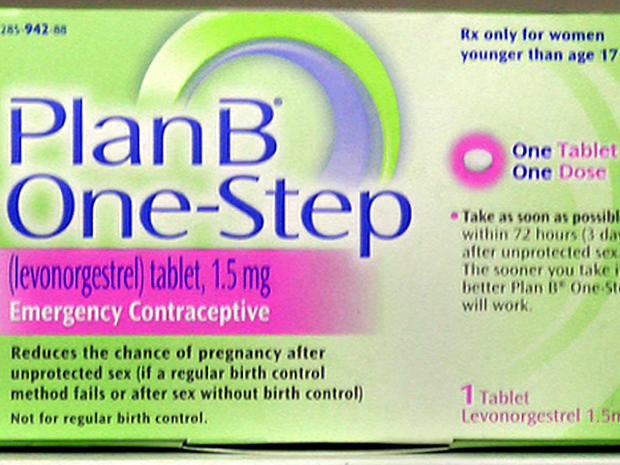Morning-after pill block "medically inexplicable," experts say
(CBS/AP) Immediately after Health and Human Services Secretary Kathleen Sebelius nixed an FDA decision that would have allowed the Plan B emergency contraceptive to be sold over-the-counter, medical experts questioned the move.
Sebelius' decision is "medically inexplicable," said Dr. Robert Block of the American Academy of Pediatrics.
FDA Commissioner Dr. Margaret Hamburg made clear that the decision is unusual. She said her agency's drug-safety experts had carefully considered the question of young girls and she had agreed that Plan B's age limit should be lifted.
Although Sebelius can legally overrule the FDA, no health secretary has ever publicly taken that step, an FDA spokesperson told the New York Times.
Sebelius decided that young girls shouldn't be allowed access to morning-after pills from drug store shelves, saying she was worried about confusing 11-year-olds. For now, Plan B will remain behind pharmacy counters, available without a prescription only to those 17 and older who show ID.
"Secretary Sebelius took this action after careful review," Obama spokesman Nick Papas said. "As the secretary has stated, Plan B will remain available to all women who need it, and the president supports the secretary's decision."
Presidential support didn't deter the medical establishment's disapproval.
"Today's decision by HHS is a profound disappointment for the health of adolescent girls and is inconsistent with what we know about the safety and benefits of emergency contraception," Dr. Leslie Walker, president of Society for Adolescent Health and Medicine (SAHM), said in a written statement.
SAHM teamed up with the American Academy of Pediatrics (AAP) and the American College of Obstetricians and Gynecologists (ACOG) to denounce Sebelius' decision in a jointly released statement.
"Today's disappointing decision by HHS counters advancements in public health and welfare by minimizing young women's ability to safely and responsibly control and protect their reproductive health," Dr. James N. Martin, Jr., president of ACOG, added in the statement. "The College will continue to push for removing the unnecessary age restriction for over-the-counter access to emergency contraception."
Some experts weren't even convinced it was plausible a young girl could access the pill without an adult's help.
"I don't think 11-year-olds go into Rite Aid and buy anything," much less a $50 pill, said Dr. Cora Breuner, a professor of pediatric and adolescent medicine at the University of Washington.
Breuner said taking Plan B, which contains a higher dose of the female progestin hormone that's found in regular birth control pills, wouldn't harm even young adolescents.
Conservative critics were pleased with Sebelius' move.
"Take the politics out of it and it's a decision that reflect the concerns that many parents in America have," said Wendy Wright, an evangelical activist who helped lead the opposition to Plan B.
Jeanne Monahan, director of Family Research Council's center for human dignity added in a written statement, "The availability of Plan B over-the-counter for all ages would have bypassed necessary routine medical care for sexually active girls."
What do you think? Should morning-after pills be available on drug store shelves?
